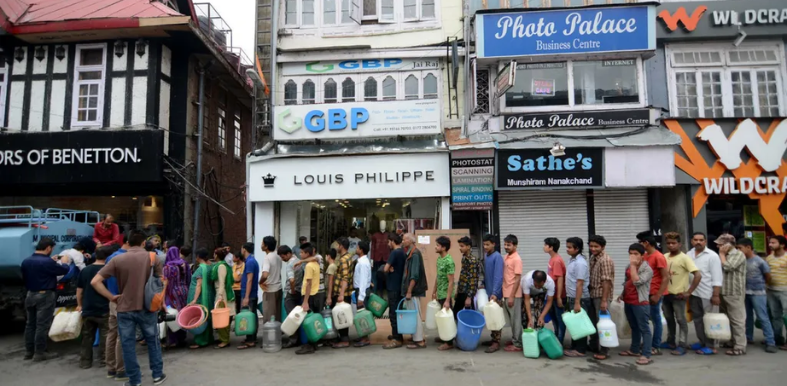Amid the peak summer season when tourists have been making a beeline to Himachal Pradesh capital Shimla to enjoy its cool climate, the city has been grappling with a severe water crisis.
The city, reliant on water from natural projects, is facing disruptions in its water supply schedule, leaving residents and businesses in distress. Reports indicate that water supply to Shimla is now staggered, with some areas receiving water only once every four to five days. In the heart of the city, particularly the Middle Bazaar and Mall Road, shops have gone without water for up to four days, exacerbating challenges for businesses and residents alike.
Residents in the outskirts and suburbs are enduring even longer wait, with some areas experiencing a five-day interval between water supplies. The situation has prompted widespread concern and inconvenience among the city’s populace.
The Shimla water management authorities have acknowledged the severity of the situation, assuring citizens that normal water supply is expected to resume within the next two days. However, the assurance comes amidst dwindling reserves in the city’s major water projects.
Key projects like Giri and Gumma, critical sources of water for Shimla, have witnessed significant reductions in water levels. Previously, the Giri project supplied up to 18 million litres per day (MLD), but currently, it is delivering less than 6 MLD to the city, highlighting the acute strain on water resources.
Localities such as Lower Panthaghati, Ghorachowki, Chakkar, Sanjauli and Dhalli are among the worst affected, experiencing extended gaps in water supply cycles ranging from four to five days. The situation has been aggravated by prolonged heat spell, which has expedited the depletion of water reserves in the projects.
The authorities said they were actively engaged in managing the crisis, with efforts focused on optimising water distribution and ensuring equitable access across affected areas.






